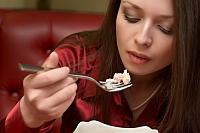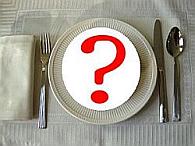Nothing can ruin a day like a headache. There are many possible headache causes as well as different types of headaches. Food sensitivity is one of the common headache triggers. Avoiding certain foods is the easiest way to give you control over your headaches.
Food triggers for headaches are different for everyone. One of the ways to figure out what foods you need to avoid is to keep a food record. Jot down a list of foods you ate every time you have headache and start eliminating them from you diet. You can add them back to your diet one food at a time and observe the results. Don’t forget to also note the environmental factors you were exposed to while having your headache such as very bright sunlight, heat, chemical fumes (could be someone’s perfume), fresh flowers.
The most common food headache triggers are : alcohol (red wine), aspartame, caffeine, canned soups, chocolate, cultured dairy products, aged cheeses (except cottage, farmer’s, ricotta and cream), dried fruits, MSG (a food additive), nuts, canned, cured, or processed meats, smoked or dried fish.
Eat more of these good magnesium foods. Magnesium has been associated with decreasing headaches. Wheat germ, beans, soy products, whole grains, seafood, dark green leafy vegetables, bananas and milk.
These foods may help lessen the pain: cayenne pepper, garlic, ginger, peppermint, fresh fish and fish oil, foods rich in calcium and magnesium.
A good preventative measure is to eat a general balanced diet of low processed foods and more fresh fruits and vegetables, wholegrain and don’t forget adequate hydration. Reading nutrition label for additives and preservatives is a good idea. Certain food dyes and flavor enhancers are headache inducers for many people.
Don’t skip meals. Going without food for long periods of time is one of the major causes for headaches. They can result from going without food for more than 5 hours or 13 hours during sleep, shorter if you have history of low blood sugar (hypoglycemia).
Avoid sudden changes in your eating habits. For example suddenly totally cutting out drinking coffee, soft drinks (caffeine deprived) or eating large amounts of any one food. Foods and beverage changes should be made gradually to let your body adapt.
Related posts:
Top Foods for Brain Nutrition
Is Green Tea Good For You?
Are You Drinking the Cleanest Bottled Water?
Healthy Smoothie Recipes for Busy People



{ 0 comments… add one now }